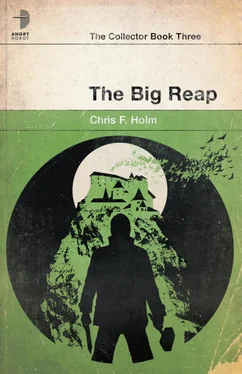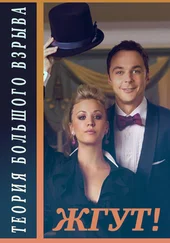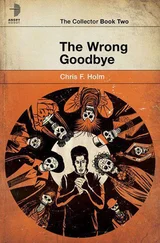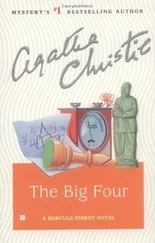But then there was the small matter of the women. And of the windows.
Namely, I didn’t see any of the former. A few pigtailed little girls mixed in among the little boys playing in the square, but none older than that, despite there being loads of men in sight from teenaged to elderly. And though the day was just as pretty as could be, all the windows that faced the square save for the storefronts were shuttered.
I suppose it could have been a fluke. Two flukes, I mean. The women were perhaps all off together having tea. The windows shuttered because no one occupied those upper floors. But two flukes seemed a little hard to swallow. Particularly in light of the twist of anxiety I felt the second I set foot here.
Well, I thought, guess it’s time to poke the hive and see what comes buzzing out.
I strolled across the small town square in a diagonal, skirting the octagonal gazebo, map and guidebook in my hands, a smile on my face. All for show, of course. “Excuse me,” I called to a young man headed past me in the opposite direction. He slowed a moment, eyes meeting mine, and I saw a flicker of understanding cross his face, as if he spoke enough English to’ve understood my interruption of his walk, at least. “I was wondering if you could help me,” I continued, emboldened by his reaction. “I’d like to know about the castle.” I pointed toward the ruins on the hill to underline my meaning. “It isn’t on my map.”
When I gestured toward the ruins, his eyes widened, and his pace quickened. “ Eu nu vorbesc limba engleza ,” he told me as he passed. I don’t speak English . I’d heard the phrase plenty since landing in-country, often said apologetically, as if it was some failing of the speaker’s and not my own ignorance of foreign tongues that was to blame for our linguistic impasse. But this guy was far from apologetic.
He was brusque.
Hostile.
Frightened.
I tried again with my inquiry, this time targeting a couple older gentlemen ensconced in genial conversation at park’s edge. “Excuse me, sirs?” I called, trotting toward them. They looked up at me and frowned — language barrier or sun’s glare, I wasn’t sure. “Pardon,” I amended (pronouncing it par-DOHN), making a show of consulting my guidebook as I did, as if I hadn’t learned that word or asked the question that followed ten dozen times since landing in this country weeks ago. “ Vorbi?i engleza? ” Do you speak English?
One of the old men shook his head, a little more emphatically than perhaps was called for. The other scowled and pointed at the church, metal scaffolding gleaming in the brilliant sunlight. I nodded, and massacred my way through “ Multumesc .” Thank you.
I headed toward the church. Up close, it was truly something to behold. Nestled in a copse of trees — that hid a small cemetery behind the church, which was framed in a low, decorative wrought iron fence scarcely two feet high, before giving way to the steep slope of the mountain — the church sat within the shadow of the ruins, and yet its quiet majesty seemed to hold the ruins’ dark presence at bay. Romania is renowned the world over for its collection of ornate wooden churches — Romanian Orthodox, all — erected in the Middle Ages by master carpenters who’d dedicated their lives to the narrow specialty of constructing such places of worship. They carved these rural houses of God from the verdant forests that surrounded them, and their appearance — from the long curved taper of the bell tower’s shingled roof, which terminated in a simple wooden cross, to the planed-smooth logs that joined in cross-hatches at the building’s corners and into which narrow windows paned with leaded glass were cut — made them look as though they sprouted from the very ground itself, and suggested what lay beneath was not basement but fibrous roots. Many were lost to war or fire over the years, and most fell into disrepair during the brutal Communist rule of the last century. This one appeared to be among the latter.
As moss-laden and dry-rotted as portions of it appeared to be beneath the metal gridlines of the scaffolding, it looked to be a stunning specimen. A tower four stories high, a single, glossy slab of wood comprised its oversized front door — not new, but newly refinished. Framing it were broad planks of wood gone gray with age, into which was carved an elaborate bas relief depicting at its upper reaches a sky filled with cold, beatific angels each emitting radiant light, which gave way to an image of a village that was recognizably this one in the middle, and beneath that a fiery hell full of writhing, naked demons in various states of torment, or perhaps ecstasy.
I found the sculpture oddly captivating, and disturbing as well. Looking at its depiction of a carnal hell, I couldn’t help but think I’d been privy to similar scenes a time or two before. In the basement of a Staten Island squat occupied by the demon Merihem and his human playthings. In an abandoned-sanitarium-turned-skim-joint in the wilds of New Mexico. I wondered if the artist had a similar first-hand inspiration for this piece.
“Quite something, isn’t it?”
When I heard the voice beside me, I damn near jumped out of my shoes. My meat-suit was clearly not accustomed to being snuck up on. He was also pretty damn well-trained, I discovered in the fraction of a second it took me to gather my wits, muscle-memory had already kicked in, and my right hand was wrapped around the grip of my SIG Sauer beneath my jacket. Through force of will, I relaxed my grip, and let the hand fall to my side.
“I’m very sorry,” said the man beside me. “I didn’t mean to startle you.”
I looked him up and down. Forty, maybe forty-five. Thick-stubbled, handsome, with dark brown hair lightened here and there by the sun and deep-set brown eyes flecked with amber. Good-humored, based on the crinkles at the corners of his eyes and the lines around his easy smile, but a forehead that showed the ghost of worry-creases suggested him a serious man as well. He wore the faded, dirt-ground jeans of a workman, and a tool belt stocked with tools. His shirt was a black button-down with a Roman collar, his shirtsleeves rolled up to reveal tanned forearms.
A priest.
I flushed at having been called out in my startlement. Covered with a change of subject. “You speak English,” I said.
He looked mock-startled for a moment, and then quipped, “By God, you’re right!”
“How’d you know I did?”
The man gestured at the guidebook in my hands. “You’re carrying The Know-Nothing’s Guide to Historic Romania ,” he replied, his words scarcely accented, and his use of contractions rare among even the best Romanian English-speakers. “So I hope you’ll forgive my impertinence, but it seemed like a fair bet.”
“No forgiveness required,” I replied, forcing myself to soften my stance and smile. “I confess, I’m happy to hear my mother tongue; it’s been a while. And if you don’t mind me saying, Father…”
“Yefi,” he supplied, extending one calloused, workingman’s hand.
“Father Yefi,” I continued, taking his hand and shaking it, “your English is quite good. I’m Frank.”
“An admirable quality,” he joked. “And as for my English, I should hope it passes muster; otherwise, I’d think my years at Harvard Divinity ill-spent. And please, just Yefi — no Father required. I’m here to meditate and reflect, not minister, which is just as well. These people have little interest in whatever spiritual guidance I might offer them. Their faith lies… elsewhere.” The priest’s countenance darkened.
“Meaning what, exactly?”
The darkness lifted, replaced with false good cheer. “Meaning they’re kind enough to leave me to my woodworking, is all. For which — most days, at least — I’m grateful.”
Читать дальше











